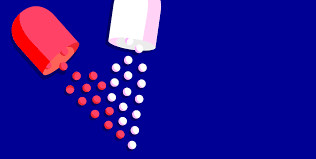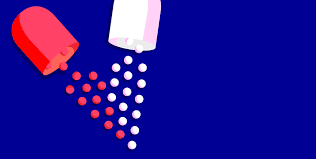
A new wave of dealmaking in a pharmaceutical industry seeking to buy its way into growth could be spurred by U.S. President-elect Donald Trump's plan to incentivize U.S. companies to repatriate their swelling overseas cash piles.
Rather than bring it home at a 35-percent tax rate, big U.S. drugmakers have turned to acquisitions of foreign companies to put their overseas cash to work for years. Hoping some of it will be spent on hiring and investing in their businesses, Trump has proposed allowing repatriation of this cash at a 10-percent tax rate.
Corporate executives and dealmakers say that as opposed to risking more of their own dollars on research and development, drugmakers are much more likely to spend this money on acquisitions that could revive their drug development pipeline by acquiring smaller peers with promising offerings.
Some of these deals could even result in job cuts as companies seek to eliminate overlaps.
"Would we consider to repatriate the cash? I would say yes, and what we would look at would be first to maintain the lowest weighted average cost of capital for the company," Amgen Inc chief financial officer David Meline told analysts and investors on the company's most recent earnings call in October.
"Then we would look at certainly deploying cash towards external opportunities, but in that instance we would certainly lead with other strategic opportunities that make sense where we could get a return for our own shareholders from such investments."
There were no comments from Trump's transition team on the potential impact of his proposed tax holiday on the drug industry.
According to Moody's Investors Service Inc, 74 percent of its total cash or $1.3 trillion was stashed overseas in 2016 by corporate America. That's up from an estimated $1.2 trillion, or 72 percent of total cash, a year earlier.
The pharmaceutical industry accounts for a big chunk of that cash even though the top five overseas cash holders are technology companies such as Apple Inc and Microsoft Corp.
According to data from U.S. non-profit research and advocacy group Citizens for Tax Justice, nearly $250 billion in overseas funds is held by the five U.S. pharmaceutical companies with the largest cash piles, namely Pfizer Inc, Merck & Co, Johnson & Johnson, Amgen and Eli Lilly and Co.
And big pharma is in hot pursuit of the next blockbuster drug at the same time. Bracing for declining revenues as patents age and competition heats up are many of the industry's most successful franchises, from Gilead's Hepatitis C cure and Biogen Inc's multiple sclerosis treatments, to AbbVie Inc's arthritis drug Humira.
After being dragged down by election-season political criticism of high drug prices, valuations of biotechnology companies that could be acquisition targets for major drug firms are still hovering near historic lows.
"Tax repatriation is a more likely situation now, benefiting large biotechs and (pharmaceutical companies) with significant offshore cash and a desire to buy mid-cap companies," RBC Capital equity analyst Michael Yee wrote in a research note.
In 2014, when companies sought to redomicile abroad through acquisitions, referred to as corporate inversions, was the last time tax considerations fueled a wave of dealmaking in the pharmaceutical industry. But that period ended in in Pfizer abandoning its $160-billion agreement to acquire Allergan Plc, the biggest attempted merger of all time as U.S. President Barack Obama subsequently announced curbs to limit inversions.
(Source:www.reuters.com)
Rather than bring it home at a 35-percent tax rate, big U.S. drugmakers have turned to acquisitions of foreign companies to put their overseas cash to work for years. Hoping some of it will be spent on hiring and investing in their businesses, Trump has proposed allowing repatriation of this cash at a 10-percent tax rate.
Corporate executives and dealmakers say that as opposed to risking more of their own dollars on research and development, drugmakers are much more likely to spend this money on acquisitions that could revive their drug development pipeline by acquiring smaller peers with promising offerings.
Some of these deals could even result in job cuts as companies seek to eliminate overlaps.
"Would we consider to repatriate the cash? I would say yes, and what we would look at would be first to maintain the lowest weighted average cost of capital for the company," Amgen Inc chief financial officer David Meline told analysts and investors on the company's most recent earnings call in October.
"Then we would look at certainly deploying cash towards external opportunities, but in that instance we would certainly lead with other strategic opportunities that make sense where we could get a return for our own shareholders from such investments."
There were no comments from Trump's transition team on the potential impact of his proposed tax holiday on the drug industry.
According to Moody's Investors Service Inc, 74 percent of its total cash or $1.3 trillion was stashed overseas in 2016 by corporate America. That's up from an estimated $1.2 trillion, or 72 percent of total cash, a year earlier.
The pharmaceutical industry accounts for a big chunk of that cash even though the top five overseas cash holders are technology companies such as Apple Inc and Microsoft Corp.
According to data from U.S. non-profit research and advocacy group Citizens for Tax Justice, nearly $250 billion in overseas funds is held by the five U.S. pharmaceutical companies with the largest cash piles, namely Pfizer Inc, Merck & Co, Johnson & Johnson, Amgen and Eli Lilly and Co.
And big pharma is in hot pursuit of the next blockbuster drug at the same time. Bracing for declining revenues as patents age and competition heats up are many of the industry's most successful franchises, from Gilead's Hepatitis C cure and Biogen Inc's multiple sclerosis treatments, to AbbVie Inc's arthritis drug Humira.
After being dragged down by election-season political criticism of high drug prices, valuations of biotechnology companies that could be acquisition targets for major drug firms are still hovering near historic lows.
"Tax repatriation is a more likely situation now, benefiting large biotechs and (pharmaceutical companies) with significant offshore cash and a desire to buy mid-cap companies," RBC Capital equity analyst Michael Yee wrote in a research note.
In 2014, when companies sought to redomicile abroad through acquisitions, referred to as corporate inversions, was the last time tax considerations fueled a wave of dealmaking in the pharmaceutical industry. But that period ended in in Pfizer abandoning its $160-billion agreement to acquire Allergan Plc, the biggest attempted merger of all time as U.S. President Barack Obama subsequently announced curbs to limit inversions.
(Source:www.reuters.com)














